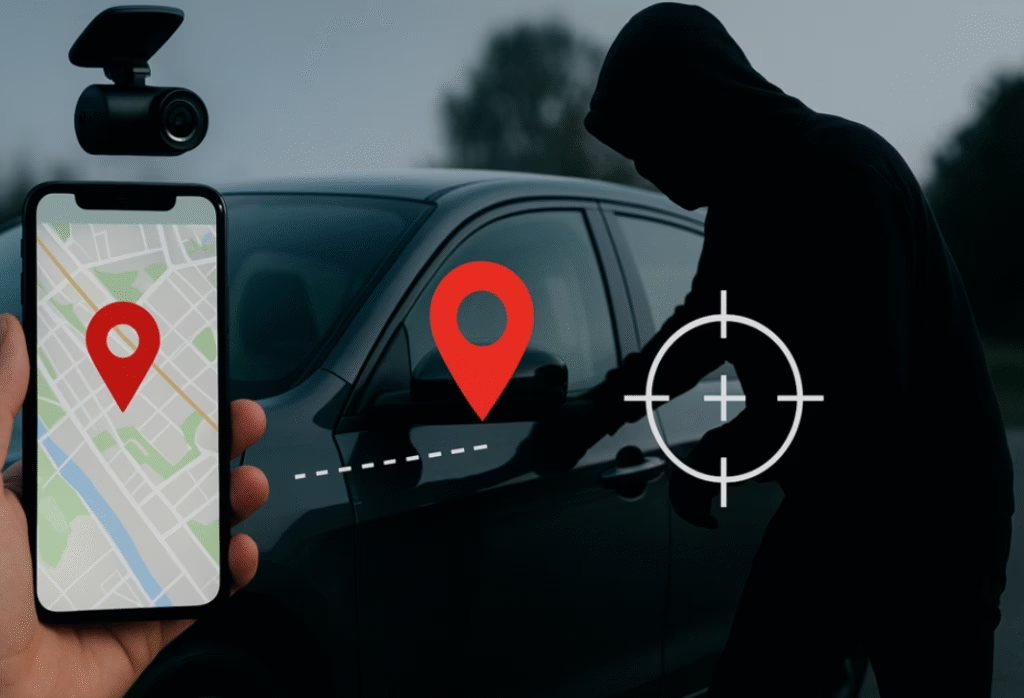Automotive theft continues to be a major concern for individual vehicle owners, commercial fleet operators, insurance companies, and law-enforcement agencies. As criminals adopt more advanced methods—from key-fob cloning to signal jamming—the need for reliable, technology-driven protection has never been more urgent. One of the most effective modern solutions is a GPS Tracker, a device designed to provide accurate, real-time location data that aids in both theft prevention and rapid recovery. When paired with a dash cam with gps or integrated into a broader tracking system, the technology becomes even more powerful, offering layers of visibility, accountability, and actionable insight that significantly reduce risk.
However, as with any security technology, implementing GPS-based solutions requires a careful evaluation of trade-offs, costs, installation methods, data reliability, and potential privacy concerns. Businesses and individuals must consider not only how these tools can protect their vehicles but also how they can influence operational efficiency, insurance decisions, and long-term asset management.
This article explores the role of GPS technology in vehicle security, how it enhances theft prevention, why it dramatically accelerates recovery, and the practical challenges users must understand before choosing a solution. It also examines the importance of balancing technological benefits with responsible usage, especially in commercial environments.
Understanding the Value of GPS Technology in Theft Prevention
Automotive theft is no longer limited to forced entry or hotwiring. Thieves increasingly employ high-tech strategies such as relay attacks, signal interceptors, and programming of duplicate keys. Traditional anti-theft devices like steering locks or alarms are useful but no longer sufficient to deter determined criminals. GPS tracking adds a crucial digital layer of protection by offering real-time or near-real-time monitoring of a vehicle’s location.
A GPS system—whether installed in a private vehicle or part of a commercial fleet—provides proactive visibility. Vehicle owners can instantly see if a car or truck has moved unexpectedly, left a designated area, or started during unusual hours. These alerts help detect theft in the earliest possible moment, which is the best time for law enforcement to intervene.
For businesses, GPS tracking also improves accountability. Fleet vehicles are often dispersed across multiple locations, operated by different drivers, or parked outside designated yards. Without continuous monitoring, a stolen work truck or van might go unnoticed for hours or even days. Real-time alerts therefore serve not only as theft prevention but also as operational oversight.
Despite the clear benefits, users must consider the trade-offs. Highly sensitive alerts can lead to notification fatigue, causing legitimate alerts to be overlooked. Systems that require extensive calibration or generate false alarms may create frustration rather than security. Therefore, it’s important to choose GPS tracking technology that balances responsiveness with accuracy and customization options.
How GPS Technology Accelerates Automotive Theft Recovery
Vehicle recovery is where GPS tracking delivers its most measurable value. Without tracking data, law enforcement may struggle to locate a stolen vehicle, especially if it is quickly moved across state lines, hidden on private property, or disassembled for parts. Time is a critical factor—studies consistently show that vehicles recovered within the first few hours sustain the least damage.
GPS tracking plays a major role in rapid recovery by:
1. Providing real-time location data
Law enforcement can act immediately once a theft is detected. GPS coordinates allow officers to track movements, identify patterns, and intercept the vehicle before it is relocated or sold.
2. Offering route history
Even if the device loses temporary signal, the recorded travel history helps reconstruct where the vehicle has been, increasing the chances of recovery.
3. Pinpointing stationary vehicles
Many stolen vehicles are abandoned once thieves remove valuables or prepare them for transport. Location data helps authorities locate these vehicles quickly.
4. Overcoming typical theft tactics
Some tracking devices include anti-jamming features, satellite connectivity, or concealed installation options, giving them an advantage over criminals who attempt to disable basic trackers.
While the benefits are significant, a challenge arises when thieves use GPS blockers or jamming devices. Good systems mitigate this issue with alerts that notify the owner whenever a signal is lost or tampered with. Still, complete immunity to interference is difficult to guarantee, and users must understand that even the most advanced systems rely on a stable connection for optimal performance.
Layered Protection: The Combined Power of Video and Location Tracking
The combination of GPS tracking and video surveillance has become an increasingly popular strategy for combating vehicle theft. A dashcam GPS tracker merges location visibility with visual evidence, offering not only positioning data but also recordings that can help identify suspects, document events leading to the theft, or show how the vehicle was accessed.
This layered approach delivers several benefits:
1. Enhanced situational awareness
While GPS data reveals where a vehicle is, dashcam footage shows what happened. If someone attempts to break in, the camera may capture the incident, helping law enforcement during investigations.
2. Driver accountability
In commercial fleets, combining dashcam and GPS tracking encourages compliant driving behaviors and prevents unauthorized vehicle use.
3. Reduced insurance disputes
Video evidence can clarify whether a vehicle was stolen, misused, or involved in an incident, reducing claim-processing delays.
4. Stronger deterrence
Visible cameras often discourage criminals from targeting a vehicle, especially when combined with sticker notifications indicating active tracking or recording.
Despite these advantages, users must consider the cost and privacy trade-offs. Dashcams with integrated GPS capabilities typically require higher investment, both in hardware and cloud storage. For businesses, recording employees may introduce privacy concerns requiring transparent policies and legal compliance. The benefit is substantial, but it must be balanced with responsible governance.
The Practical Challenges of Implementing Vehicle Tracking
Though GPS tracking is highly effective, adopting the right tracking solution requires understanding several challenges:
1. Installation Complexity
Hardwired systems are more tamper-resistant but require professional installation. This increases cost and downtime. On the other hand, plug-and-play devices are easier to install but potentially easier for thieves to identify and remove.
This becomes a trade-off between convenience and security.
2. Cost Considerations
Tracking devices come with two categories of cost:
● Hardware purchase
● Monthly software or service fees
Advanced features like real-time tracking, video integration, or satellite connectivity increase pricing. Fleet operators must evaluate long-term ROI, considering how much theft risk their industry faces. For example, construction companies and logistics fleets face higher theft risks than office-based businesses and may justify a larger investment.
3. Connectivity Limitations
GPS tracking relies on satellite communication; if a vehicle is hidden in underground garages, metal containers, or remote areas with weak signals, tracking accuracy may degrade.
Users must understand the limitations:
● Some devices switch to cellular triangulation when satellite connection is limited.
● Hybrid devices maintain limited tracking even in low-signal environments.
● But no system can guarantee 100% accuracy in every location.
4. Data Overload and Alert Fatigue
Modern tracking platforms offer:
● Movement alerts
● Ignition alerts
● Door open alerts
● Geofence alerts
● Speed alerts
● Tamper alerts
While valuable, too many notifications can overwhelm users, causing important alerts to be missed. Businesses must configure their GPS tracking system thoughtfully to filter unnecessary notifications and highlight critical events.
5. Privacy and Compliance Concerns
For commercial fleets, tracking vehicles and drivers raises questions about:
● How much data should be collected
● When tracking should begin and end
● Whether video recording is acceptable during personal use
● How long footage and location data should be stored
Some regions have strict data privacy laws governing employee monitoring. Balancing safety and privacy is essential. Companies must adopt transparent policies, secure data-handling practices, and respectful boundaries to maintain trust.
Geofencing: A Key Component of Theft Prevention
One of the most powerful features of modern GPS tracking platforms is geofencing. This tool allows the user to draw virtual boundaries around certain areas—such as home, job sites, service zones, or parking lots. When a vehicle exits or enters these zones, the system sends an instant alert.
Geofencing plays a critical role in theft prevention by:
● Notifying owners of unauthorized movement
● Ensuring vehicles remain within designated operational areas
● Allowing companies to monitor after-hours use
● Providing early detection that drastically reduces response time
However, geofencing must be configured carefully. Setting boundaries too small can cause frequent, unnecessary alerts when GPS accuracy fluctuates, while boundaries that are too large may delay notification. Balancing precision and practicality is important for actionable monitoring.
How Fleet Operators Benefit from Theft Prevention Technology
For commercial fleets—delivery services, construction companies, transportation providers, rental businesses—the impact of theft extends far beyond losing a single vehicle. Theft disrupts schedules, increases insurance premiums, reduces customer satisfaction, and introduces operational downtime.
GPS tracking and video-based data help fleet operators:
● Recover assets faster
● Reduce insurance claims
● Identify misuse or unauthorized routes
● Track after-hours vehicle activity
● Ensure compliance with company policies
● Monitor high-value cargo
● Secure tools, equipment, and trailers connected to the vehicle
The challenge for fleets lies in managing dozens or hundreds of tracked units. A robust GPS tracking system must offer centralized monitoring, easy reporting, automated alerts, and strong customer support to ensure smooth operation at scale.
Balancing Technology, Cost, and Practicality
When choosing vehicle security technology, users must consider multiple factors:
1. Level of theft risk
High-risk industries (construction, logistics, rental fleets) benefit the most from sophisticated, multi-layered tracking.
2. Budget
A basic tracker may be affordable but limited in features. Higher-cost options offer better accuracy, video integration, and anti-tamper abilities.
3. Ease of use
A system that is too complex can discourage consistent monitoring and limit its effectiveness.
4. Privacy requirements
Personal vehicle owners and businesses must balance security with legal and ethical data practices.
5. Long-term scalability
For fleets, selecting a solution that can grow with the business helps avoid constant replacement of hardware or software.
Why GPS Tracking Remains One of the Most Effective Solutions
Despite challenges, GPS tracking remains the most effective automotive theft prevention tool available today. Unlike physical deterrents—locks, alarms, immobilizers—GPS technology works even after a theft occurs. It not only prevents loss but actively accelerates recovery. No other tool offers both proactive and reactive protection at such scale.
Beyond theft recovery, GPS tracking improves operational efficiency, reduces downtime, lowers fuel costs, and provides valuable insights into driver behavior and vehicle performance. These additional benefits often justify the investment even if theft risk is relatively low.
For private owners, GPS tracking offers peace of mind. For businesses, it supports asset protection, productivity, and long-term planning.
Wrapping Up
Automotive theft continues to evolve, but so does the technology designed to combat it. Tools such as GPS trackers, dashcam GPS tracker, and other advanced GPS tracking solutions offer comprehensive protection that blends prevention, visibility, and rapid recovery. While users must consider factors like cost, installation complexity, privacy concerns, and connectivity limits, the advantages far outweigh the trade-offs for most vehicle owners and fleet operators.
By approaching GPS tracking strategically—balancing features, risks, and long-term impact—users can significantly boost vehicle security, reduce operational losses, and ensure fast, successful recovery when theft occurs. Ultimately, GPS technology does not eliminate risk entirely, but it creates a powerful digital shield that makes vehicles far harder to steal and far easier to recover.





